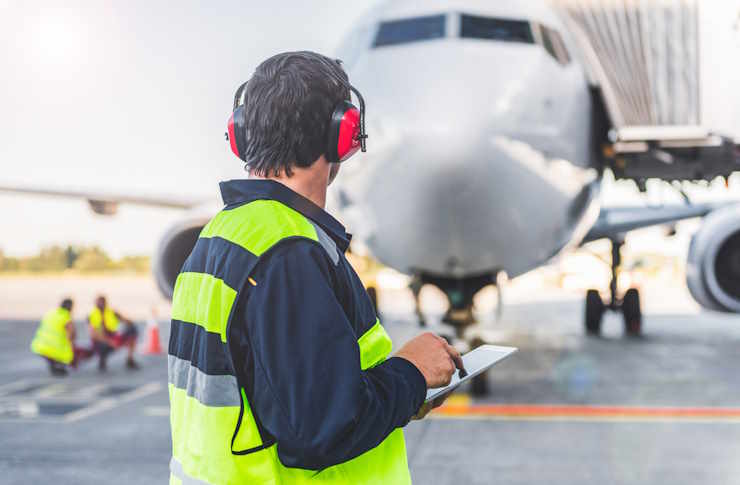Exploring Diverse Airport Job Opportunities: Your Career in Aviation Starts Here
The aviation industry offers numerous career opportunities spanning multiple departments and skill levels across airport operations. From customer service roles to technical positions, airports function as complex ecosystems requiring diverse talent to maintain safe, efficient operations. Understanding the various career paths available can help individuals identify roles that match their interests, skills, and professional goals within this dynamic industry.

What Aviation Career Opportunities Exist at Airports
Airport operations encompass a wide range of professional roles across multiple departments. Customer service representatives assist passengers with check-in, baggage, and general inquiries, while security personnel ensure safety compliance through screening procedures and facility monitoring. Maintenance teams handle aircraft servicing, ground equipment repairs, and facility upkeep. Administrative positions include human resources, finance, marketing, and management roles that support overall airport operations.
Technical positions require specialized knowledge and certifications. Air traffic controllers coordinate aircraft movements, requiring extensive training and certification through federal programs. Aircraft mechanics perform inspections, repairs, and maintenance on various aircraft types, necessitating specific licenses and ongoing education. Cargo handlers manage freight operations, while ramp agents coordinate ground services including aircraft loading, fueling, and pushback operations.
Ground Staff Roles and Operational Career Paths
Ground operations form the backbone of airport functionality, offering entry-level positions with advancement opportunities. Baggage handlers process luggage through sorting, loading, and transportation systems. Gate agents manage passenger boarding procedures, flight announcements, and customer service issues. Ticket counter staff handle reservations, check-in procedures, and travel documentation verification.
Ramp services include aircraft marshaling, cargo loading, and ground equipment operation. These positions often require physical capabilities and safety training but provide pathways to supervisory roles. Ground crew coordinators oversee multiple teams, ensuring timely aircraft turnarounds and adherence to safety protocols. Many airlines offer internal promotion programs, allowing ground staff to advance into management positions or specialized technical roles.
Food service and retail operations within airports also provide employment opportunities. Restaurant staff, retail associates, and facility cleaning crews contribute to passenger experience and airport functionality. These roles often offer flexible scheduling and can serve as entry points for individuals seeking airport employment while pursuing additional training or education.
Career Development Through Aviation Training Programs
Professional development in aviation typically requires formal training programs, certifications, or specialized education. Air traffic control positions mandate completion of Federal Aviation Administration programs, which can take several months to complete. Aircraft maintenance careers require Airframe and Powerplant licenses, obtained through technical schools or community college programs lasting 18-24 months.
Airport management positions often require bachelor’s degrees in business, aviation management, or related fields. Many universities offer specialized aviation programs combining business principles with industry-specific knowledge. Professional organizations provide continuing education opportunities, networking events, and certification programs for career advancement.
On-the-job training programs exist for many entry-level positions, with airlines and airport authorities offering internal development tracks. These programs allow employees to gain experience while earning relevant certifications. Cross-training opportunities enable workers to develop skills across multiple departments, increasing versatility and advancement potential within airport operations.
Aviation training costs vary significantly based on program type and duration. Federal Aviation Administration training programs for air traffic controllers are typically provided at no cost to accepted candidates, as they represent government employment preparation. Aircraft maintenance training at technical schools ranges from $15,000 to $35,000 for comprehensive programs. University aviation management degrees cost between $20,000 and $60,000 depending on institution type and residency status.
| Training Type | Duration | Cost Range | Certification Result |
|---|---|---|---|
| Air Traffic Control | 3-18 months | Government funded | FAA Controller License |
| Aircraft Maintenance | 18-24 months | $15,000-$35,000 | A&P License |
| Aviation Management Degree | 4 years | $20,000-$60,000 | Bachelor’s Degree |
| Ground Operations Training | 2-8 weeks | $500-$3,000 | Company Certification |
Prices, rates, or cost estimates mentioned in this article are based on the latest available information but may change over time. Independent research is advised before making financial decisions.
Salary Expectations and Benefits in Airport Careers
Compensation in aviation careers varies considerably based on position, experience, and geographic location. Entry-level ground staff positions typically start between $25,000 and $35,000 annually, with opportunities for overtime pay and shift differentials. Customer service roles offer similar starting wages, with advancement potential to supervisory positions earning $40,000 to $55,000 yearly.
Technical positions command higher salaries reflecting specialized training requirements. Aircraft mechanics earn median salaries between $50,000 and $70,000, with experienced professionals in major metropolitan areas potentially earning $80,000 or more. Air traffic controllers represent among the highest-paid airport positions, with median salaries ranging from $60,000 to $120,000 depending on facility size and traffic volume.
Benefits packages in aviation often include health insurance, retirement plans, and travel privileges. Many airline employees receive standby flight benefits, allowing discounted or free travel opportunities. Shift work is common in airport operations, with many positions offering premium pay for evening, weekend, and holiday shifts. Union representation exists in many airport positions, providing additional job security and benefit negotiations.
Aviation careers provide diverse opportunities for individuals with varying educational backgrounds and professional interests. The industry requires continuous adaptation to technological advances, regulatory changes, and evolving passenger needs. While some positions require significant training investments, many offer stable employment with clear advancement pathways. Success in aviation careers typically depends on reliability, attention to detail, and commitment to safety protocols that ensure efficient airport operations.




